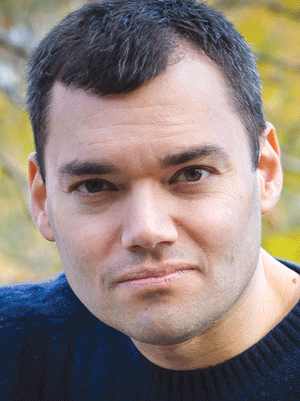Reviewed by NEAL GENDLER
J Street supporters probably will like Peter Beinart’s The Crisis of Zionism a lot.
The rest of us maybe not so much. But it’s thoughtful and important, and I found myself agreeing with many of its main points. Israel-bashers will lament that Beinart wholly supports the Jewish state.
But he thinks that it’s moving too far from its founding ideals and that the American Jewish establishment is abetting that drift.
Beinart argues that the occupation is destroying Israeli democracy and diminishing support among younger American Jews; that the American Jewish establishment has “lurched right,” its leading organizations abandoning Jewish liberalism and becoming increasingly unrepresentative of the Jewish majority, and that American Jews should feel freer to criticize Israel.
He opposes criticism of Israel’s legitimacy but says the occupation is morally wrong, creating two Israels — one democratic and one not.

Crisis, said to be controversial, is surprisingly balanced and non-strident. Beinart, no member of Blame Israel First, proclaims himself a Zionist, sends his son to a Jewish school and davens in a Modern Orthodox shul. He sees Israel’s virtues as well as its faults, mainly its treatment of Arabs in Israel and in the territories. He mostly acknowledges those faults’ origins, meaning that Arabs share blame.
Beinart’s beautifully written introduction is brilliant, observing that American Jews haven’t internalized the enormous change from their powerlessness and from anti-Semitism, and that Jews under 44 never knew a time when Israel didn’t control Judea and Samaria. But he argues that Israel is failing as a democracy because of its rule over its Palestinian Arab “subjects.”
A big problem, he says, is that “young American Jews are far less likely [than their elders] to build their identity around victimhood.” Many have scant Jewish education, reducing Jewish involvement and love for the Jewish state. Regarding Israel less as a refuge than as a distant, imperfect democracy, they’re “abandoning American Zionism.”
He says young Modern Orthodox are strongly committed to Israel but less so to Israeli democracy, calling theirs “illiberal Zionism.” Beinart says Birthright Israel, which gives young Jews a free 10-day trip to the Jewish state, is too new to judge its long-term effects.
With subtle but impressive care for balance and accuracy, Beinart refers to “the lines that prevailed before the 1967 six-day war”; even Jews, unthinkingly and incorrectly, call those 1949 armistice lines “borders.”
Beinart shows less concern about map lines than that “occupying another people requires racism, and breeds it.” This is a failure of Israeli democracy, “and American Jews are helping it fail… Unless American Jews help end the occupation that desecrates Israel’s founding ideals,” he says, Zionism will become “a movement that fails the test of Jewish power.”
Well! Beinart makes a strong political and moral case against continued rule over Judea and Samaria. (He says Jerusalem and the Golan are different because Arabs there can become Israeli citizens.) But despite the need for the majority of non-Orthodox American Jews to remain committed to Israel — which he ably argues requires Israel to remain a liberal democracy — he is not convincing when arguing that Israel should make security decisions based on how American Jews will react.
Life-and-death decisions belong to those who share the risks and consequences, and Beinart and we American Jews live an ocean away — not in Sderot. And, with rare exceptions, we do not send our children to guard Israel’s borders.
Beinart leaves plenty for readers to consider. He says the Netanyahu government is trying to prevent a Palestinian Arab state by creating conditions that make it impossible for the Arabs to settle. But for the first nine months of Obama’s 10-month “settlement freeze,” the Palestinian Authority refused to negotiate.
Negotiation means compromise; I don’t recall an official P.A. statement offering to settle for anything less than maximal demands — which it must know are beyond the Israeli consensus. Prime Minister Ehud Olmert’s last offer to P.A. President Mahmoud Abbas — which reportedly included great concessions — went unanswered, according to an article in the April 9 edition of the mostly liberal Jerusalem Report magazine.
(One cannot help asking: Are there any terms to which the Arabs would agree for an end to hostilities and a final settlement?)
Beinart’s idea that by freely criticizing Israel, American Jews will alter its behavior and thus feel more attached to it doesn’t seem to consider that free speech isn’t free of negative, as well as positive, consequences. When Jews claiming to love Israel criticize it publicly, no one hears love, only criticism — as already has happened with his book and newspaper accounts.
Public opinion drives our government’s policies. If Jews don’t appear to support Israel, why should anyone else?
***
Neal Gendler is a Minneapolis writer and editor.
(American Jewish World, 4.13.12)


















